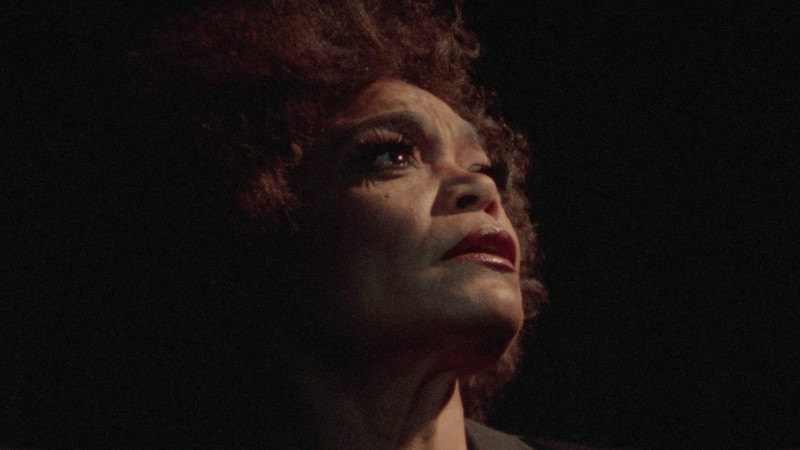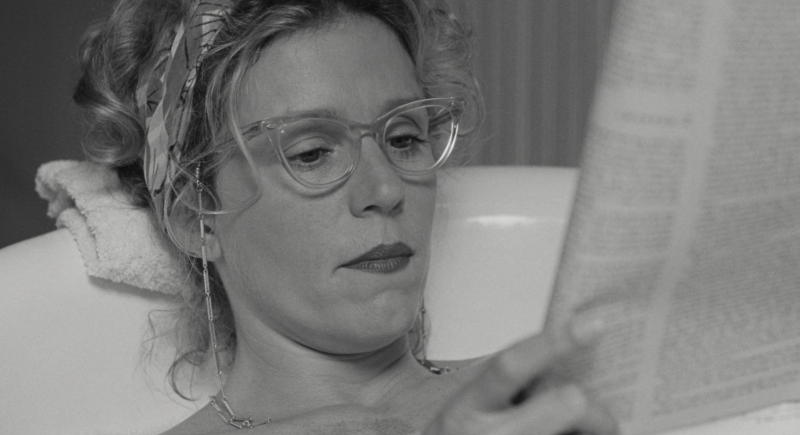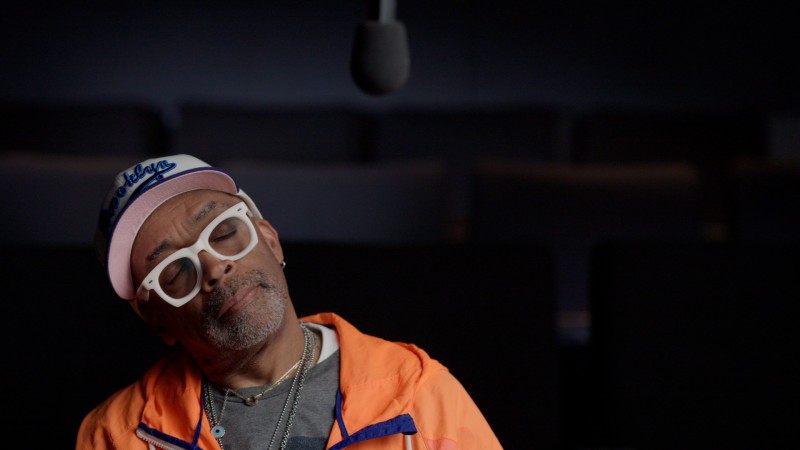Godard at Cannes, Part Two

There is no otherfilmmaker who has been so influential in my life as Godard. When I was a teenager, films like Pierrot le fou andMade in U.S.A made me aware of cinema as an aesthetic form in the most striking and memorable of ways. As a politicized student, I found the Dziga Vertov Group’s coruscating analysis of the language of film more than compelling. As an academic, I have devoted two books to his life and work. I am, you might say, predisposed in his favor. However, Film socialisme, which he contributed to Cannes two years ago, was so bad-tempered and mean that I finally, fifty years after I’d got on the bus, got off. Of course, Film socialisme had a brilliant premise—a cruise ship going round the Mediterranean with passengers drawn from all of Europe. As the ship navigates coasts steepedin Europe’s history, the hedonistic and ignorant passengers pursue their own affairs. The problem was that, although the press pack told you that this was the premise, the film was so determined to deny you any pleasure that the moment that a fragment of narrative or beauty appeared, there was the heaviest of cuts. I doubt that there has ever been a more castrating film. As always, though, Godard proved himself uncannily prophetic—the ship that he used for the film, the Concordia, hit the global front pages when it stranded itself (with considerable loss of life) off Elba in a terrible example of dereliction of duty. But when I sat in the Lumière cinema in Cannes and the final sneering card said “No comment,” I thought that I had finally found a Godard film that I disliked.
So I’m afraid that this year I pitched up at Adieu au langage in a sour frame of mind. However, the new film disarmed me from the beginning. The bad temper had been replaced by playfulness. Godard has often been at the cutting edge of technology, particularly with video, and his technological inventiveness is on display in this 3D film. Most directors use 3D to make the screen more realistic. Godard, a confirmed Brechtian, uses it to distance as well as engage. Flowers appear in the audience. The female protagonist goes to the side of the screen to sit on your shoulder. Godard has found yet another way to interrogate his images. And they are his images—the ferry onLake Geneva, the couple arguing, the hands reaching out across the screen to intersect, the naked woman shot to emphasize the beauty of her pubic hair. Anyone familiar with Godard’s work will find much that is familiar. Indeed, you could even make an argument that the film is a remake of 1964’sUne femme mariée—the plot synopsis describes a married woman meeting a single man. And yet this familiarity is not in any way stale. The images sparkle, the soundtrack entrances. Images from the history of cinema are now fully integrated into the investigation of the present.
The story? Well, perhaps this very short (seventy minutes) feature has the advantage over Film socialisme that there is no story at all. Instead there are patterns of images and sound overlaid with quotations from the authors, such as Walter Benjamin and HannahArendt, who have obsessed Godard for so long. There is the concern with history, above all Hitler and Nazism, and the understanding of history as makingno distinction between image and reality, so that the history of the cinema and the history of the modern world wind in and out of each other.
The film seems also to mark yet a further domination by Godard of the technology of cinema. For the first time in many films, Godard has dispensed with François Musy as his sound engineer, and I am told that recent technological advances mean that he is now able to control all the aspects of filmmaking himself. Alexandre Astruc’s postwar dream of a “caméra-stylo,” of filmmakingthat would be as much under the author’s control as a pen, is now a reality. Ever since his move from Paris to the shores of Lake Geneva in the mid-seventies, Godard’s cinema has been a cinema of solitude. In Adieu au langage, the solitude intensifies, and it is up to the viewer whether he or she wishes to enter Godard’s singular world. There are new things. The film foregrounds dogs in general, and particularly Roxy Miéville, who bounces through the film. Animals have never before been a focusfor Godard, but here, as in Film socialisme, they seem to offer an image of acceptable sociality. There is also a new thinker, or at least one new to me: Jacques Ellul, a Christian anarchist who combined a relentlessly pessimistic analysis of technology with a heterodox but unflinching Calvinism.
It should be said that ever since 1985’s Hail Mary, Godard has been circling back to the faith of his fathers, but in this film that focus is more intense. The female voice says, “He has made us humiliated beings.” “Who?” asks the male voice. “God,” replies the woman. Godard undercuts this extreme Calvinism by writing on the screen “Gods,” in the plural. In French the singular and plural for god sound exactly the same, and by thus pitting soundtrack against image Godard complicates, in by now very familiar ways, any simple meaning. However, it is difficult not to feel that the film is, among other things, the work of an old Protestant pastor fulminating against the sins of the world and the irredeemable fallenness of man. But to focus only on that would be to ignore the beauty of the sounds and images that Godard has gathered together. The soundtrack, ranging from classical music to revolutionary song, is a constant delight, and the visual effects, particularly the use of video color, burn into the brain.
As for the title: “Good-bye to language” may simply mean that Godard has his finger on the intellectual pulse and is signaling his awareness that “the linguistic turn” is, for the new generation of philosophers, irredeemably of the past. Certainly this does not seem to be the final work that he has been promising for so long. Indeed, in many ways it looks like a new beginning. I’m back on the bus.





